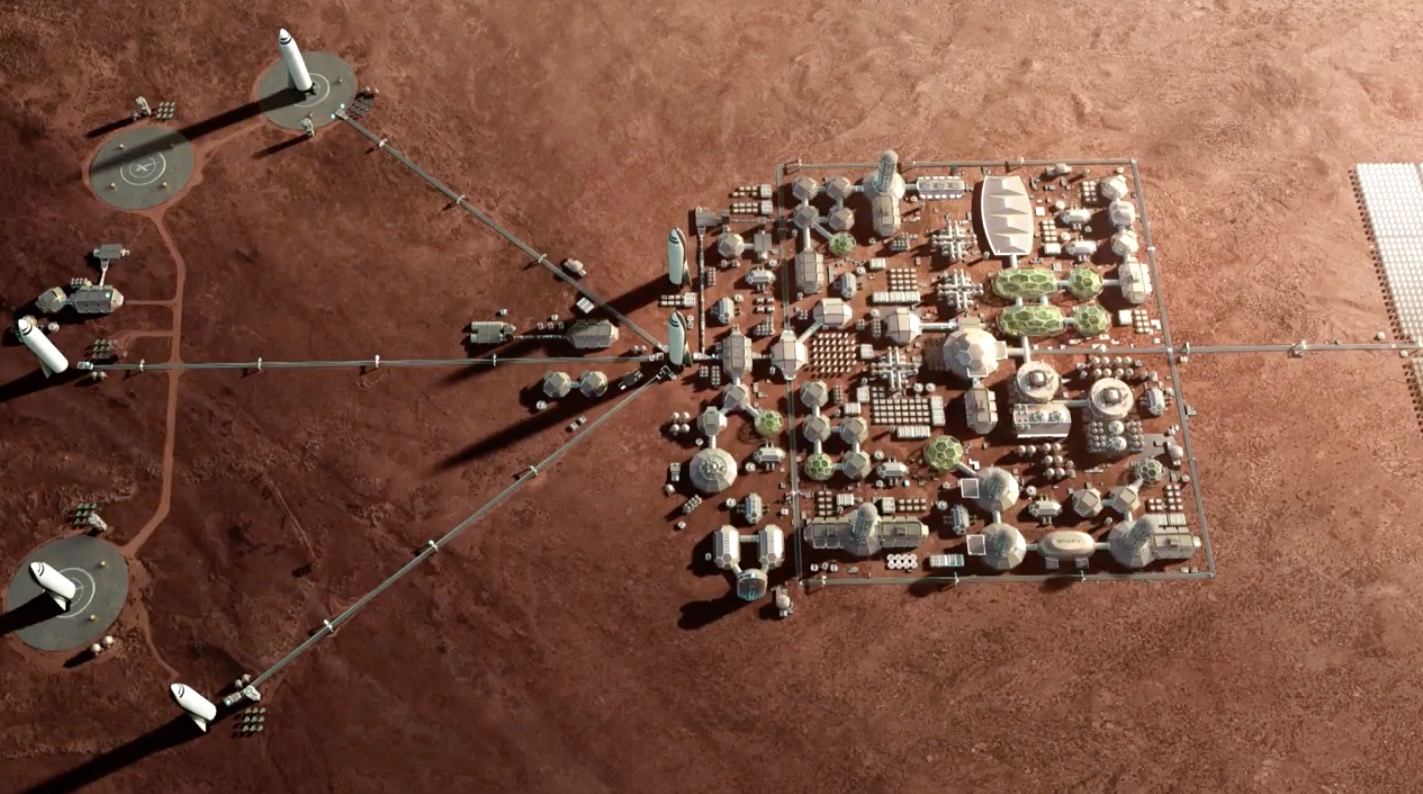Bill Nye: It's Space Settlement, Not Colonization

As we prepare to expand our reach in the solar system, we should pay attention to the language we use to describe that endeavor, Bill Nye said.
Nye, the former TV "Science Guy" who heads the nonprofit Planetary Society, thinks we should frame our coming exploration activities in a positive linguistic light.
"In the planetary community, we discourage the use of the verb 'colonize.' We prefer 'settle,'" Nye said Wednesday (Oct. 23) at the 70th International Astronautical Congress (IAC) meeting in Washington, D.C. "Colonizing has gotten a bad rap, understandably."
Related: How Living on Mars Could Challenge Colonists (Infographic)
That bad rap stems from the violence and oppression that multiple colonizing powers have inflicted on native peoples around the world. Think of the Spanish throughout the Western Hemisphere; the English in North America, India and Australia; the Dutch in South Africa, the Caribbean and Indonesia; and the Belgians in central Africa. (There are, of course, many other examples; this is just a bare-bones list.)
So, as Nye noted, a number of scholars, exploration advocates and other folks in the spaceflight community wish to avoid association with the word "colonize" and all the freight it carries. And some researchers have stressed that rejecting this verb could even have tangible benefits, helping to put us in the right mindset to explore space responsibly and sustainably.
Last year, for example, astronomer Lucianne Walkowicz organized a conference called "Decolonizing Mars," which tackled some of these issues head-on.
Breaking space news, the latest updates on rocket launches, skywatching events and more!
"Many people are used to hearing about 'colonizing Mars' to talk about humanity living in space; here, we examine how using a colonialist framework in space reproduces past harm from humanity's history on Earth," the conference website reads. "This event is about envisioning fresh pathways for thinking about space exploration by stepping away from the ways we usually talk about space, which by definition is 'decolonizing' the topic."
And Walkowicz is not a fringe voice in the space community. She's based at the Adler Planetarium in Chicago, and at the time of the conference, she was also serving as the Baruch S. Blumberg Chair in Astrobiology, Exploration, and Scientific Innovation at the Library of Congress.
There are other possible objections to "colony" and "colonize" as well. For instance, the words evoke outposts that exist primarily to enrich, and are still very much dependent upon, a faraway home country — not the end goal that exploration advocates are shooting for. "Settle" and "settlement" are generally considered more neutral descriptions.
That's not to say that these latter terms have no baggage at all; "settle," "settler" and "settlement" are now closely associated in many people's minds with the Israeli government's controversial activities in the West Bank and the Golan Heights, as Jesse Singal noted last year in a piece for Reason.
Singal isn't on board with the push to purge "colony" and "colonize" from the space exploration lexicon, stressing that using the terms is not an endorsement of historical horrors.
"Having people shift from colony to something else to describe bases/outposts/habitats in outer space or on extraterrestrial bodies in no way alters or has any effect on the sociological and psychological and political and economic forces that will determine whether and to what extent space exploration benefits, rather than harms, humanity on net," Singal wrote. "If anything, harping over such innocent uses of language distracts from the actual issues."
Singal's Reason article is, at least in part, a response to a piece by Caroline Haskins in The Outline called "The Racist Language of Space Exploration." Haskins discussed the potential deleterious effects of the language of colonialism at length and talked to Walkowicz and other experts. Both pieces are definitely worth a read.
This linguistic debate — or discussion, however it unfolds — will likely ramp up when we've actually plunked some outposts down on other worlds. And that could happen soon: NASA aims to establish a long-term, sustainable human presence on and around the moon by 2028, and SpaceX is building a spaceflight system called Starship that's designed to help humanity set up shop on Mars. The first commercial Starship missions, which will likely loft communications satellites, could launch as soon as 2021, SpaceX representatives have said.
Nye isn't bullish about humanity's space settlement/colonization prospects, by the way. For example, he has voiced considerable skepticism about our ability to establish a city on Mars in the near future.
And his linguistic comments at IAC on Wednesday were in response to a question about whether Jupiter's ocean moon Europa would be the next solar system body settled by our species.
"To put it simply: no! It's fantastically far away and cold. There is no air. There is nothing to breathe; there is nothing to eat," Nye responded. "As far as this romantic notion of just going out and setting up shop on different planetary bodies — I really encourage us all to think it through."
- Moon Base Visions: How to Build a Lunar Colony (Photos)
- Starship and Super Heavy: SpaceX's Mars-Colonizing Transportation System
- How Will a Human Mars Base Work? NASA's Vision in Images
Editor's note: This story was updated at 12:30 pm ET to include information about Bill Nye's views on humanity's planet-settling prospects.
Mike Wall's book about the search for alien life, "Out There" (Grand Central Publishing, 2018; illustrated by Karl Tate), is out now. Follow him on Twitter @michaeldwall. Follow us on Twitter @Spacedotcom or Facebook.

Michael Wall is a Senior Space Writer with Space.com and joined the team in 2010. He primarily covers exoplanets, spaceflight and military space, but has been known to dabble in the space art beat. His book about the search for alien life, "Out There," was published on Nov. 13, 2018. Before becoming a science writer, Michael worked as a herpetologist and wildlife biologist. He has a Ph.D. in evolutionary biology from the University of Sydney, Australia, a bachelor's degree from the University of Arizona, and a graduate certificate in science writing from the University of California, Santa Cruz. To find out what his latest project is, you can follow Michael on Twitter.
